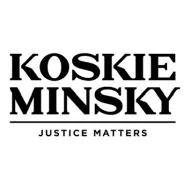- with Senior Company Executives, HR and Finance and Tax Executives
- with readers working within the Accounting & Consultancy, Banking & Credit and Business & Consumer Services industries
When an employee is terminated from their employment, whether it be by constructive dismissal or otherwise, the employee has a duty to mitigate his/her damages by seeking alternative employment. However, does an employee have a duty to accept employment with the very same employer who terminated his/her employment in order to fulfill the duty to mitigate his/her damages? This is a question that many terminated employees struggle with.
The Ontario Court of Appeal recently considered an appeal from a trial decision wherein the trial judge found that the terminated employee had failed to mitigate his damages when he declined to return to work for his former employer and, therefore, he was not entitled to damages.
The employee in this case was laid-off and two weeks thereafter commenced an action seeking damages for constructive dismissal. The employer had mistakenly believed that they could legally lay-off the employee and in fact, later admitted that the employee had been constructively dismissed. However, upon realizing their error, the employer offered the employee his job back only days after the commencement of his claim. The employee refused to return to his position, alleging amongst other things, that by returning to work for his prior employer he would be subjected to an atmosphere of hostility, embarrassment or humiliation.
The trial judge applied the principles enunciated in the leading Supreme Court of Canada decision in Evans v. Teamsters Local Union No. 31 [2008] 1 S.C.R. 661, which outlines when a dismissed employee must return to work for the same employer to mitigate his/her damages. In the circumstances of this case, the trial judge determined that the terminated employee's refusal to return to work for his prior employer was unreasonable.
On appeal, the employee argued that simply because he left the company when he was laid-off and thereafter sued the company for wrongful dismissal, the employment relationship between the parties "was acrimonious and infused with animosity"thus justifying why he could not return to work for his prior employer. However, this argument was rejected by the Ontario Court of Appeal, based on the record before the Court. The Ontario Court of Appeal affirmed the trial judge's decision, which resulted in no damages being awarded to the terminated employee based upon his failure to mitigate his damages.
This case is important for terminated employees in two respects: firstly, it stresses to terminated employees the need to take a contextual approach in evaluating whether or not it would be reasonable for them to return to work for their prior employer, if offered, in order to mitigate their damages; and, secondly, it serves as a strong reminder to all terminated employees that the duty to mitigate their damages should be taken very seriously. If a terminated employee is found to have failed to mitigate their damages, they may not be awarded any damages, even if they are found to have been wrongfully dismissed.
Chevalier v. Active Tire & Auto Centre Inc. [2012] O.J. No. 3414, affirmed [2013] O.J. No. 4092 (C.A.)
The content of this article is intended to provide a general guide to the subject matter. Specialist advice should be sought about your specific circumstances.


